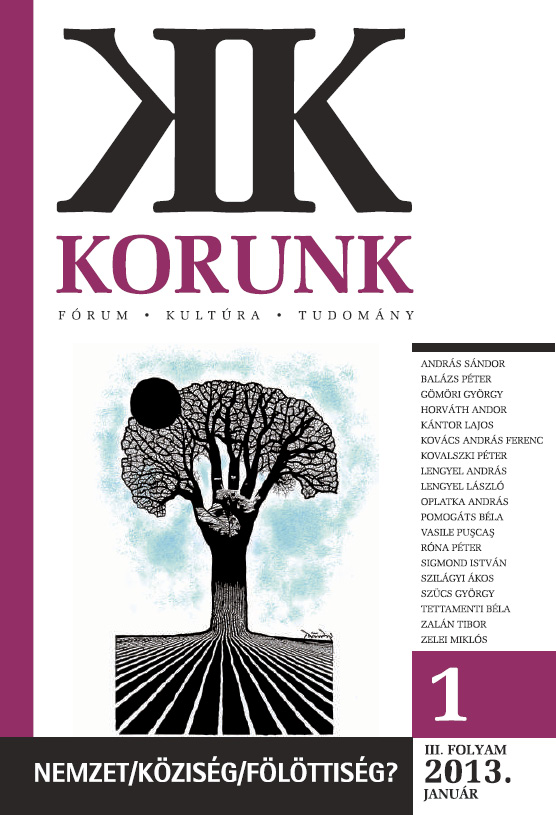Nemzet, nemzetköziség, nemzetfölöttiség
Nation, internationality, supernationality
Author(s): Sándor AndrásSubject(s): Philosophy, History of Philosophy, Contemporary Philosophy, Nationalism Studies
Published by: Korunk Baráti Társaság
Keywords: David Hume; nationalism; international organizations; cultural nation; political nation
Summary/Abstract: Against the older slogan according to which tomorrow’s world will be an international one, and by virtue of which the Western world once strongly condemned any kind of “nationalism” in the name of democracy, the author adds the amendment that internationality is not possible without nations, and also vice versa, the nation is not possible without other nations and internationality, which is substantiated, since the middle of the 20th, by international alliances and organizations. Nations, in their political and cultural sense, have their roots in the same fundamental reality of the people and their human need for society and community. However, internationality is as real of a fact in the world like any nation. Political nations have to be centrally governed, and they need to relate to other political nations. Cultural nations, in turn, have an autarchic character, and differ from other cultural nations even when their language is thought to be the same. In other words, the rub lies nowhere else than in us, the people themselves.
Journal: Korunk
- Issue Year: 2013
- Issue No: 01
- Page Range: 7-18
- Page Count: 12
- Language: Hungarian

